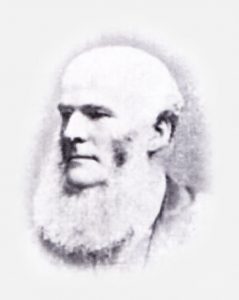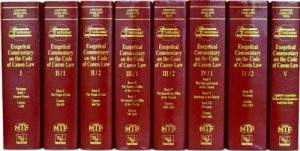
We learn from Scripture that, in every instance in which man has been set in a place of responsibility, he has utterly failed. Total failure has marked man’s history, from Paradise to Pentecost. There is not a single exception to the dark and melancholy rule. Let man be tried under the fairest possible circumstances, and he is sure to break down. Let a business start with the very brightest prospects, most often hopeless bankruptcy will be the end. There is no denying this fact – no getting over it. It runs like a dark, broad line along the page of human history, from first to last.
Adam’s Sin
When at first, man was placed in the garden of Eden, surrounded by all that the hand of an Almighty and Beneficent Creator could do to make him happy, he believed the serpent’s lie, and turned his back on God. He proved, in an unmistakable manner, that he had more confidence in the serpent than in Jehovah Elohim – more respect for the word of the devil than for the Word of the blessed Creator. He trusted Satan rather than God, blessed throughout the everlasting ages. This is our first proof.
It could be said that Adam did not know he was listening to the devil. But how does that affect the real merits of the case? Satan would never say, ‘I am the devil; and I am come to slander Jehovah Elohim, and get you to turn your back upon Him altogether”. Yet this was precisely what he did, and Adam accepted serpent’s lie. That led to the word of God being replaced by human superstition.
Noah’s Drunkenness
Man progressed until at length his iniquity rose to a head, and God sent the deluge. Noah was carried safely through the judgment, and placed at the head of the restored earth, and given the sword of government. How does Noah carry himself? He gets drunk and degrades himself in the presence of his sons. Whatever excuse he might have given, he got drunk and exposed himself.
Israel’s Sins
When Israel was redeemed out of Egypt, the people solemnly pledged themselves to do all that Jehovah had spoken. What happened? Just after receiving the tables of the law, no less a person than Aaron made a golden calf and said, ‘These be thy gods, O Israel, that brought thee up out of the land of Egypt’ (Ex 32:4). Jehovah displaced by a calf – How terrible! – and how deeply humiliating. Consequent on this the priesthood failed and Aaron’s sons offered strange fire;
So man fails always – the results: Adam was driven from the garden; Noah was despised by his son, and Israel saw the tables of testimony shattered to atoms, and Aaron never appeared in the presence of God in his garments of glory and beauty.
Failure continued – Israel got a king. What followed? – strange wives, gross idolatry, and a divided nation.
Now the Church
It need not surprise us to find that in the Christian church similar sad failures occur. All started well:
‘They that gladly received his word were baptized: and the same day there were added unto them about three thousand souls. And they continued stedfastly in the apostles’ doctrine and fellowship, and in breaking of bread, and in prayers. And fear came upon every soul: and many wonders and signs were done by the apostles. And all that believed were together, and had all things common; and sold their possessions and goods, and parted them to all men, as every man had need. And they, continuing daily with one accord in the temple, and breaking bread from house to house, did eat their meat with gladness and singleness of heart, praising God, and having favour with all the people. And the Lord added to the church daily such as should be saved’ (Acts 2:41-47).
‘And the multitude of them that believed were of one heart and of one soul: neither said any of them that ought of the things which he possessed was his own; but they had all things common. And with great power gave the apostles witness of the resurrection of the Lord Jesus: and great grace was upon them all. Neither was there any among them that lacked: for as many as were possessors of lands or houses sold them, and brought the prices of the things that were sold, and laid them down at the apostles’ feet: and distribution was made unto every man according as he had need’ (Acts 4:32-35).
Here we have a lovely sample of true Christianity – some rich clusters of the fruit of the Spirit – the glorious triumph of grace over all the narrow selfishness of nature – the exquisite merging of all personal interests and considerations in the common good. It displays of the moral glories of heaven – a fair and touching illustration of what it will be in a future day, when our God shall have things His own way, with new creation in view and the heavens above and the earth beneath under the benign influence of the Saviour’s reign.
The Church’s Failure
But alas, in the public church, this lovely picture was marred. Covetousness and deceit soon broke out in Ananias and Sapphira, and the murmuring of the Grecians against the Hebrews, proving that man is the same, always and everywhere. Unfaithfulness, failure, sin and ruin are stamped on every page of man’s history, from first to last. It is perfectly useless for anyone to deny this.
Of course, we are not looking on the church as the body of Christ. In this aspect, thank God, there can be no failure. Christ infallibly maintains His church according to the divine integrity of His own work. He will soon present His church without spot or wrinkle or any such thing. He has expressly declared that the gates of hell shall not prevail against His assembly.
Paul had to warn the Ephesian elders, ‘Take heed therefore unto yourselves, and to all the flock, over the which the Holy Ghost hath made you overseers, to feed the church of God, which He hath purchased with His own blood. For I know this, that after my departing shall grievous wolves enter in among you, not sparing the flock. Also of (or from among) your own selves shall men arise speaking perverse things, to draw away disciples after them’(Acts 20: 28-30).
– This was a warning about the church fathers who insisted on their own authority – and held questionable doctrine.
Paul told Timothy ‘Now the Spirit speaketh expressly, that in the latter times some shall depart from the faith, giving heed to seducing spirits, and doctrines of devils; speaking lies in hypocrisy; having their conscience seared with a hot iron; forbidding to marry, and commanding to abstain from meats, which God hath created to be received with thanksgiving of them which believe and know the truth’(1 Tim 4:1-3)
– This describes Romanism and popery.
And ‘This know also, that in the last days perilous times shall come. For men shall be lovers of their own selves, covetous, boasters, proud, blasphemers, disobedient to parents, unthankful, unholy, without natural affection, trucebreakers, false accusers, incontinent, fierce, despisers of those that are good, traitors, heady, highminded, lovers of pleasures more than lovers of God; having a form of godliness, but denying the power thereof: from such turn away’(2 Tim 3:1-5).
– This describes Protestantism and infidelity.
Another great principle which we need to bear in mind is that God never restores a fallen witness. When man fails in his responsibility – which, as we have before proved, he always does – God does not reinstate him. He brings in something better, as the fruit of His own sovereign grace; but He never puts a new piece upon an old garment. What is of man cannot be reformed.
Edited and extracted from C H Mackintosh ‘LETTERS TO A FRIEND ON THE PRESENT CONDITION OF THINGS’ – Reprinted from ‘Things New and Old’ Vols. 17 – 18, 1874 and 1875.


 I know this, that after my departing shall grievous wolves enter in among you, not sparing the flock. Also of your own selves shall men arise, speaking perverse things, to draw away disciples after them. (
I know this, that after my departing shall grievous wolves enter in among you, not sparing the flock. Also of your own selves shall men arise, speaking perverse things, to draw away disciples after them. (
 It is clear that in the 1800’s J N Darby and other godly men and women had to contend with those who taught that eternal punishment in hell was inconsistent with a loving God. Some positions were:
It is clear that in the 1800’s J N Darby and other godly men and women had to contend with those who taught that eternal punishment in hell was inconsistent with a loving God. Some positions were:



 There is little doubt that things are moving quickly. At one time Rome persecuted true believers using torture and even the stake. Many dear saints perished in the Spanish Inquisition – and even now this is celebrated in some parades. Manuel, a friend of my father, as a young man during the Spanish civil war, was shown a coffin by a priest and told, ‘That is where you are going!’ He fled. Rome’s heart hasn’t changed.
There is little doubt that things are moving quickly. At one time Rome persecuted true believers using torture and even the stake. Many dear saints perished in the Spanish Inquisition – and even now this is celebrated in some parades. Manuel, a friend of my father, as a young man during the Spanish civil war, was shown a coffin by a priest and told, ‘That is where you are going!’ He fled. Rome’s heart hasn’t changed.